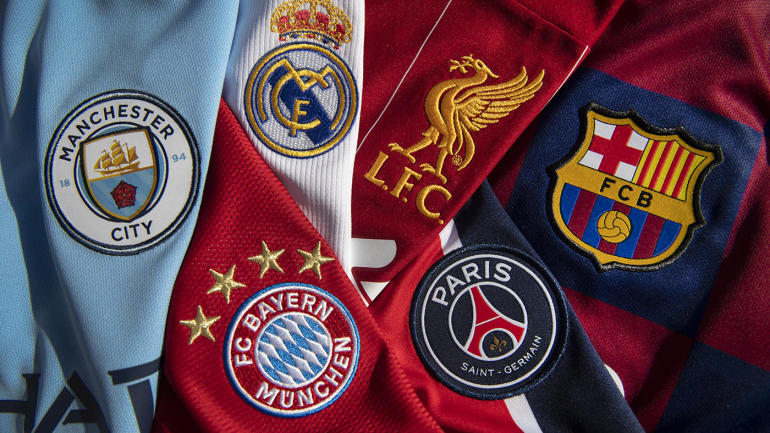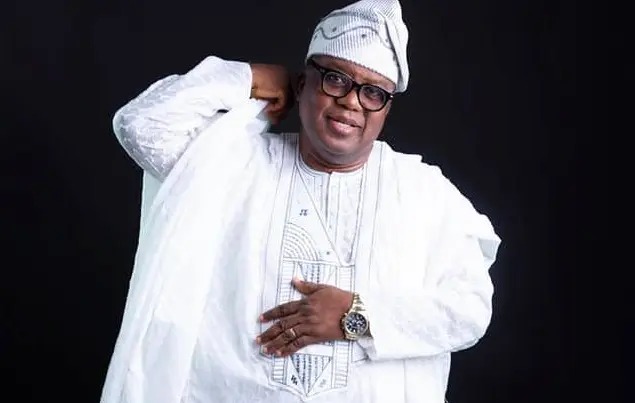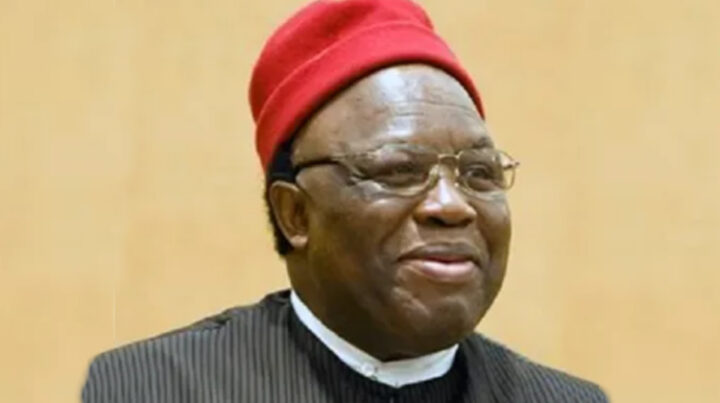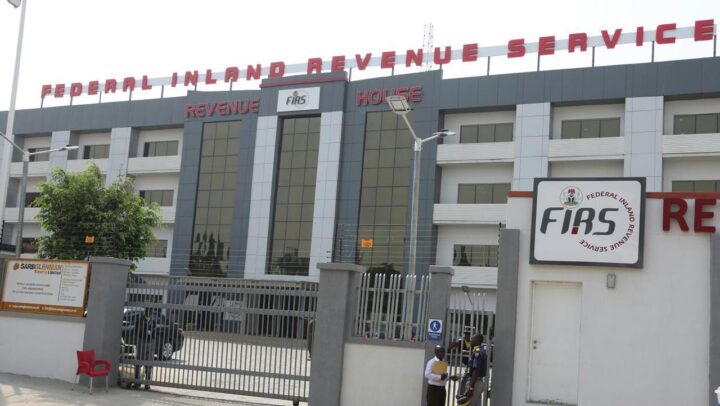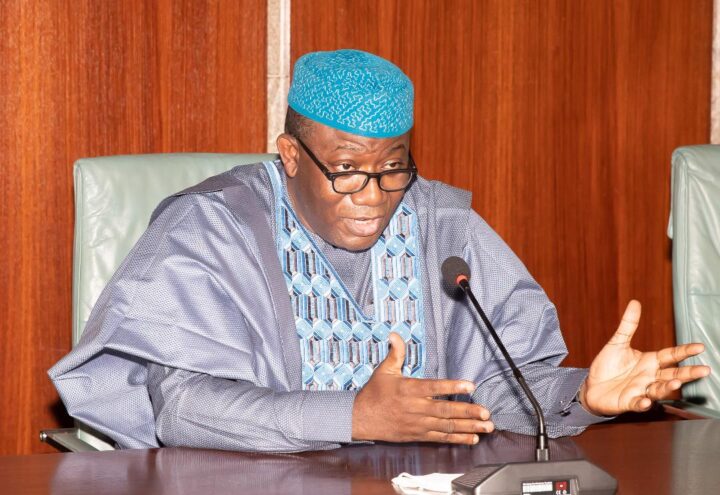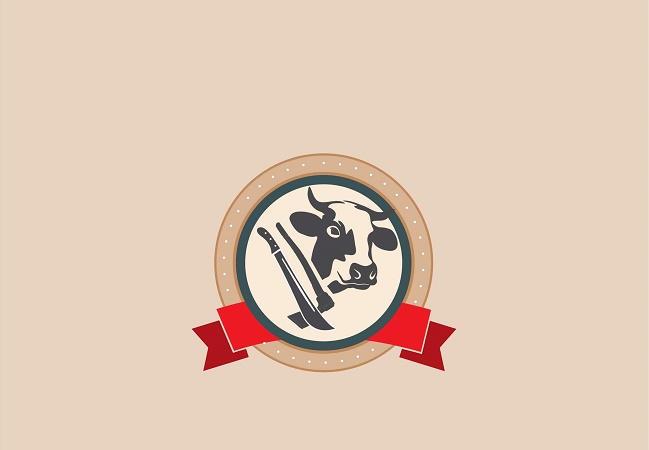MANCHESTER, ENGLAND - OCTOBER 20: The badges of Manchester City, Bayern Munich, Real Madrid, Liverpool, Paris St-Germain and FC Barcelona, the top teams in the Champions League on October 20, 2020 in Manchester, United Kingdom. (Photo by Visionhaus)
The football world was on Sunday inundated with seismic news of the proposed creation of a new Super League, with twelve of Europe’s leading football clubs giving their approval to what appears to be a new midweek tournament, which is a breakaway competition from the glamorous UEFA Champions League (UCL).
The announcement provoked a plethora of backlashes from current and former football players and managers as the football’s governing body also threatened to wield the big stick on erring clubs.
Most of the detractors argued that the Super League is inspired by nothing but the “greediness of these big European clubs” to earn more money as JP Morgan, an American bank, confirmed it would be supporting the league with $6billion.
According to Marca, a Spanish sports newspaper, participating clubs are bound to earn three times the amount of revenue the UCL currently rake in for them — with the winner of the competition projected to earn about €400 million, compared to the €120 million that is given out to Champions League winner each year.
Advertisement
Although the clubs who agreed to be part of the competition said they plan to continue playing in their respective domestic leagues, the Champions League is believed to be a potential casualty of this project.
What does it mean for the Champions League?
The fate of the prestigious Champions League hangs by a precarious thread should the project go through.
Advertisement
The European behemoths announced the project 24 hours before UEFA’s discussion on the reform of the UCL.
The clubs had long been pressing UEFA for a format that’ll make the competition more competitive but it seems the teams can’t wait any longer.
According to a statement on the Super League website, the competition will hold in midweeks, which automatically overwrites the clubs’ participation in UCL that holds traditionally on Tuesdays and Wednesdays.
“Midweek fixtures with all participating clubs continuing to compete in their respective national leagues, preserving the traditional domestic match calendar which remains at the heart of the club game,” the statement added.
Advertisement
Who are the clubs involved?
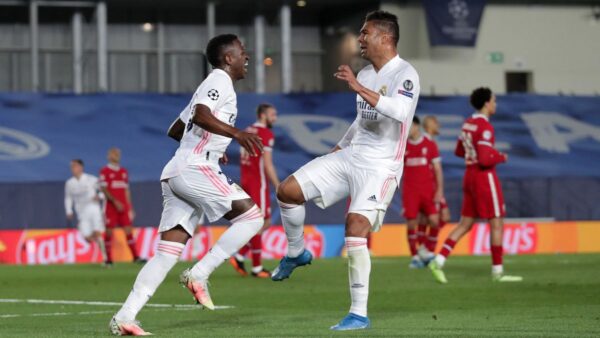
The 12 “founding clubs” also include the English Premier League “big six” — Manchester United, Manchester City, Liverpool, Arsenal, Chelsea and Tottenham Hotspurs.
Real Madrid, Barcelona, Atletico Madrid, Juventus, Inter Milan, and AC Milan make up the list while three other clubs are expected to join before the maiden season of the competition begins.
Advertisement
While clubs like Bayern Munich, the current UCL winner, and Paris Saint-Germain are not among the 12 European Super League founding members, the german club issued a statement to state its position on the development.
“FC Bayern has not been involved in the plans for creating a Super League,” said Karl-Heinz Rummenigge, Bayern Munich CEO.
Advertisement
“We are convinced that the current structure in football guarantees a reliable foundation. FC Bayern welcomes the reforms of the Champions League because we believe they are the right step to take for the development of European football.”
Statement from Karl-Heinz Rummenigge on the planned European Super League.
Advertisement— FC Bayern Munich (@FCBayernEN) April 19, 2021
Advertisement
What is the European Super League’s format?
According to the league’s organisers: “The Super League is a new European competition between 20 top clubs comprising 15 founders and five annual qualifiers. There will be two groups of 10 clubs each, playing home and away fixtures within the group each year.
“The top three in each group automatically qualify for the quarter-finals. Teams finishing fourth and fifth will then compete in a two-legged play-off for the remaining quarter-final positions.
“Following the group stage, eight clubs will qualify for a knockout tournament, playing home and away until the single-match Super League championship, in a dramatic four-week end to the season.”
Who is in charge of the Super League?
According to the announcement, Florentino Pérez, president of Real Madrid CF, is the first chairman of the Super League.
- Chairman: Florentino Perez (Real Madrid)
- Vice-chairman: Andrea Agnelli (Juventus)
- Vice-chairman: Joel Glazer (Manchester United)
What have been the reactions so far?

The development has been met with widespread criticisms from various corners of the football world.
In its reaction, UEFA threatened to ban clubs and players that participate in the proposed league from European and FIFA tournaments.
“We will consider all measures available to us, at all levels, both judicial and sporting in order to prevent this happening. Football is based on open competitions and sporting merit; it cannot be any other way,” it wrote.
“The clubs concerned will be banned from playing in any other competition at domestic, European or world level, and their players could be denied the opportunity to represent their national teams.”
UEFA, the English Football Association, the Premier League, the Royal Spanish Football Federation (RFEF), LaLiga, the Italian Football Federation (FIGC) and Lega Serie A have today released a statement.
Read it in full here: 👇
— UEFA (@UEFA) April 18, 2021
On its part, the English Premier League (EPL) condemned the Super League and called it an attempt to destroy football.
“Fans of any club in England and across Europe can currently dream that their team may climb to the top and play against the best. We believe that the concept of a European Super League would destroy this dream,” it wrote in a statement.
Also reacting, Prime Minister Boris Johnson wrote on Twitter: “Plans for a European Super League would be very damaging for football and we support football authorities in taking action. They would strike at the heart of the domestic game, and will concern fans across the country.
“The clubs involved must answer to their fans and the wider footballing community before taking any further steps.”
The clubs involved must answer to their fans and the wider footballing community before taking any further steps. (2/2)
— Boris Johnson (@BorisJohnson) April 18, 2021
Some footballers also took to the microblogging platform to express their disapproval for the Super League, with Ander Herrera, PSG midfielder, describing it as the “rich stealing what the people created.”
“I fell in love with popular football, with the football of the fans, with the dream of seeing the team of my heart compete against the greatest,” he wrote.
“If this European Super League advances, those dreams are over, the illusions of the fans of the teams that are not giants of being able to win on the field competing in the best competitions will end. I love football and I cannot remain silent about this, I believe in an improved Champions League but not in the rich stealing what the people created, which is nothing other than the most beautiful sport on the planet.”
— Ander Herrera (@AnderHerrera) April 19, 2021
Fenerbahce’s Mesut Özil also tweeted: “Kids grow up dreaming to win the World Cup and the Champions League – not any Super League. The enjoyment of big games is that they only happen once or twice a year, not every week. Really hard to understand for all football fans out there.”
Kids grow up dreaming to win the World Cup and the Champions League – not any Super League. The enjoyment of big games is that they only happen once or twice a year, not every week. Really hard to understand for all football fans out there…⚽💔
— Mesut Özil (@M10) April 19, 2021
Arsene Wenger, former Arsenal FC manager, described the league as “a bad idea” while calling for the unity of football.
“I would say it’s a bad idea. Football has to stay united, it’s the most important thing. It’s based on sporting merit and to respect the history that has been built from European football. I believe, personally, that this idea will not go far,” he told TalkSports.
Gary Neville, former Manchester United defender, called the Super League an “absolute disgrace”.
“It’s pure greed. They (the club’s owners) are imposters. They’re nothing to do with football in this country. There’s 100-odd years of history in this country of fans who have lived and loved these clubs,” Neville told Sky Sports.
“We’re in the middle of a pandemic and an economic crisis. Football clubs in the National League are going bust, furloughing players and these lot are having Zoom calls about breaking away.
“Dock them all points tomorrow. Put them at the bottom of the league and take the money off them. Seriously, you have to stamp on this.”
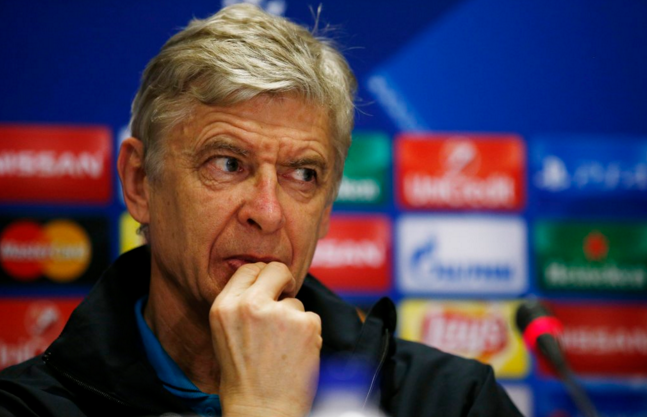
On his part, Sir Alex Ferguson, legendary Manchester United manager, lamented that it would end 70 years of football history.
“Talk of a Super League is a move away from 70 years of European club football. Both as a player for a provincial team Dunfermline in the 60s and as a manager at Aberdeen winning the European Cup Winners’ Cup, for a small provincial club in Scotland it was like climbing Mount Everest,” he told Reuters
“Everton are spending £500 million to build a new stadium with the ambition to play in Champions League. Fans all over love the competition as it is. In my time at United, we played in four Champions League finals and they were always the most special of nights.
“I’m not sure Manchester United are involved in this, as I am not part of the decision-making process. With many fans, we are concerned that this plan could create a closed shop at the very top of our national game.”
Below are more reactions to the planned creation of Super League:
If the #SuperLeague will be realized, it will destroy football with its national leagues as we know it and this is a very sad thought to me.
— Bastian Schweinsteiger (@BSchweinsteiger) April 19, 2021
Al fin van a salir del "bar de las cinco de la mañana", de la "clandestinidad", los "gurus" de la superliga de "powerpint", embriagados de egoismo e insolidaridad. La @UEFAcom y @EuropeanLeagues y @laliga llevamos tiempo trabajando en este momento y tendrán su debida respuesta. pic.twitter.com/M5bUTaXKmG
— Javier Tebas Medrano (@Tebasjavier) April 18, 2021
This so called « Superleague » is anything but « Super ». This greedy and callous move would spell disaster for our grassroots, for women’s football, and the wider football community… (1/2)
— Luís Figo (@LuisFigo) April 19, 2021
What an embarrassment we’ve become @LFC think of all the people who have come before us at this club who would be equally embarrassed as well. #SuperLeague https://t.co/zLxhNyeaXB
— Jamie Carragher (@Carra23) April 18, 2021
Hundreds of fans protesting outside Elland Road. ‘F*** the Super League’ is the chant. Followed by ‘six greedy bastards.’ #LFC #LUFC pic.twitter.com/CVrntEeKjV
— James Pearce (@JamesPearceLFC) April 19, 2021
Now, more than ever, we must protect the entire football community – from the top level to the grassroots – and the values of competition and fairness at its core.
I share the concerns of fans about the proposed Super League and the damage it risks causing to the game we love. W
— The Prince and Princess of Wales (@KensingtonRoyal) April 19, 2021
